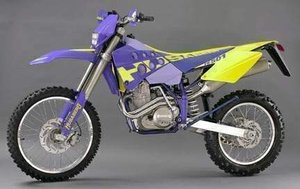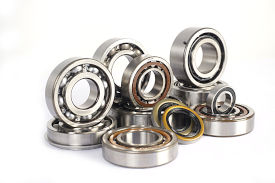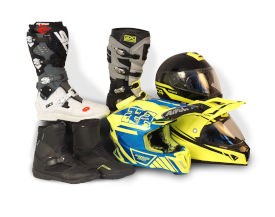Husaberg FE 501 (1996-1999): The Swedish Fire-Breather That Redefined Enduro Spirit
Introduction
When the Husaberg FE 501 burst onto the enduro scene in the mid-1990s, it didn’t just enter the market – it kicked down the door. This Swedish-engineered machine, produced between 1996 and 1999, became an instant legend among hardcore off-road enthusiasts. With its potent 501cc engine, race-bred chassis, and minimalist design philosophy, the FE 501 wasn’t just a motorcycle – it was a statement. Let’s dissect why this bike remains a benchmark for raw enduro performance, even decades after its production run ended.
Design & Styling: Function Over Flair
The FE 501’s design language screams Scandinavian pragmatism. The cobalt blue and electric yellow color scheme (a Husaberg trademark) isn’t just eye-catching – it’s a warning label. Every element serves a purpose:
- Frame Geometry: The chrome-molybdenum steel frame uses a distinctive "semi-double cradle" design, keeping weight centralized for better maneuverability
- Bodywork: Ultra-slim polyethylene panels shave weight while surviving rock impacts
- WP Suspension Dominance: Those iconic gold-anodized WP forks aren’t just pretty – they’re 43mm USD units tuned for enduro brutality
What’s fascinating is how Husaberg balanced durability with weight savings. At 109-116 kg (240-256 lbs) dry, it undercuts modern 450cc enduro bikes. The exposed engine acts as a stressed member, showcasing mechanical beauty while saving 1.8 kg (4 lbs) over conventional designs.
Engine Performance: The Swedish Chainsaw
Let’s address the 501cc elephant in the room. This liquid-cooled single isn’t just powerful – it’s characterful. The 95mm bore and 70.1mm stroke create a square-ish ratio (1.35:1) that delivers explosive mid-range.
Key Power Traits:
- 52 HP @ 9000 RPM: Equivalent to ripping up tree stumps with your right wrist
- Carburetion: The Keihin FCR flat-slide carb provides crisp throttle response (when properly jetted)
- Vibration: It’s a big single – rubber-mounted handlebars help, but your fillings might disagree after 3 hours
Riding the FE 501 feels like taming a wild animal. Below 4,000 RPM? Manageable trail manners. Past 6,000 RPM? Hang on tight – the front wheel becomes a compass needle pointing skyward. The 6-speed gearbox ratios are perfectly spaced, with 1st gear crawler-low and 6th capable of 140 km/h (87 mph) bursts between trail sections.
Handling & Suspension: Precision Swedish Steel
Here’s where the FE 501 separates from the pack. The WP suspension setup – 4860 MA forks up front and PDS 5018 shock out back – offers 300mm (11.8") of travel. But it’s the tuning that impresses:
- Front End Feel: The USD forks resist flex during hard braking into rutted corners
- Rear Progression: The PDS (no-linkage) system gives a plush initial stroke that firms up predictably
- Weight Distribution: 42% front/58% rear ratio makes lofting the front tire almost telepathic
At 1490mm (58.7") wheelbase, the FE 501 dances between trees like a trials bike. Yet it remains stable at speed – a delicate balance few enduro bikes achieve. The secret? A steep 26.5° head angle combined with 114mm (4.5") of trail. Translation: quick steering without headshake.
Brakes & Wheels: Stopping the Unstoppable
For a ’90s enduro bike, the braking performance remains respectable:
- Front Brake: 260mm disc with 2-piston caliper (adequate for 240 lbs bike)
- Rear Brake: 220mm disc prevents rear-wheel lockups on loose descents
The 21" front/18" rear spoked wheels (with CNC-machined hubs) accept modern rubber. Our recommendation? Ditch the original 90/90-21 front for a 90/100-21 to improve sand performance. The 140/80-18 rear tire works surprisingly well with today’s gummy compounds.
Ergonomics & Comfort: Tall Rider’s Paradise
At 950mm (37.4") seat height, the FE 501 isn’t for the vertically challenged. Standover clearance is generous, but shorter riders might struggle:
- Handlebar Position: 860mm (34") width provides leverage without catching trees
- Footpeg Placement: Rear-set pegs create a standing-friendly 58° knee angle
- Fuel Range: The 9L (2.37 gal) tank limits rides to 90-110 km (56-68 mi) between refuels
The seat foam is firm – typical of race-focused machines. Aftermarket solutions (available at MOTOPARTS.store) can add 20mm of plushness without compromising handling.
Competition: How It Stacks Up
The FE 501’s contemporaries were no slouches. Let’s compare:
1. 1997 KTM 500 EXC
- Advantages: Wider 6th gear, dual ignitions maps
- Husaberg Edge: 8 kg (17.6 lbs) lighter, better suspension action
2. 1996 Yamaha WR500
- Advantages: More reliable kickstart mechanism
- Husaberg Edge: 15% more peak torque, liquid cooling
3. 1998 Honda XR600R
- Advantages: Legendary reliability, 23L fuel range
- Husaberg Edge: 30% more power-to-weight, modern suspension
The FE 501’s party trick? Behaving like a 250cc in technical sections while delivering open-class power. Modern equivalents like the KTM 500 EXC-F inherited this philosophy but added 25 years of refinement.
Maintenance: Keeping the Beast Alive
Here’s where Husabergs earned their "high maintenance" reputation. Key considerations:
1. Engine Rebuilds
- Piston Replacement: Every 80-100 hours (softer than Japanese rivals)
- Big End Bearing: Monitor play every 50 hours
- Valve Adjustments: Shim-under-bucket design requires tooling expertise
2. Carburetor Care
The Keihin FCR demands:
- Diaphragm inspections every 30 hours
- Pilot jet cleaning after dusty rides
- Accelerator pump timing adjustments
3. Suspension Service
- Fork Seals: Replace every 150 hours (use SKF seals for longevity)
- Shock Nitrogen: Recharge every 200 hours
MOTOPARTS.store Recommendations:
- Upgrade to a Twin Air filter with sealed cage
- Install an aftermarket clutch slave cylinder (reduces fade)
- Replace original chain guides with polymer-composite units
Conclusion: Legacy of the Blue Beast
The Husaberg FE 501 isn’t just a motorcycle – it’s a masterclass in focused engineering. Yes, it demands mechanical sympathy and rewards skilled riders. But when you’re carving through a mountain single-track, that 52 HP engine singing while the WP suspension devours obstacles, you’ll understand why this bike became iconic.
For owners today, the FE 501 offers a raw, analog riding experience that modern EFI bikes can’t replicate. And with MOTOPARTS.store’s extensive catalog of upgrades and OEM-spec components, keeping your Swedish thoroughbred alive is easier than ever. Just remember – respect the power, maintain it religiously, and this ’90s legend will outride bikes half its age.
Specifications sheet
| Engine | |
|---|---|
| Stroke: | Four-stroke |
| Ignition: | CDI |
| Starting: | Kick |
| Max power: | 38 kW | 51.0 hp |
| Fuel system: | Carburetor |
| Max power @: | 9000 rpm |
| Displacement: | 501 ccm |
| Configuration: | Single |
| Cooling system: | Liquid cooled |
| Number of cylinders: | 1 |
| Dimensions | |
|---|---|
| Wheelbase: | 1490 mm (58.7 in) |
| Dry weight: | 109 |
| Seat height: | 950 mm (37.4 in) |
| Fuel tank capacity: | 9 L (2.37 US gal) |
| Drivetrain | |
|---|---|
| Final drive: | chain |
| Transmission: | 6-speed |
| Chassis and Suspension | |
|---|---|
| Rear brakes: | Single 220 mm disc |
| Front brakes: | Single 260 mm disc |
| Rear suspension: | WP PDS 5018 Husaberg Enduro |
| Front suspension: | WP USD 4860 MA Husaberg Enduro |


















